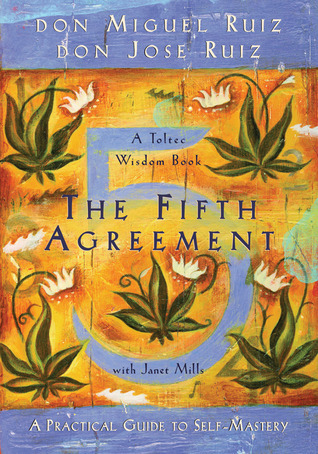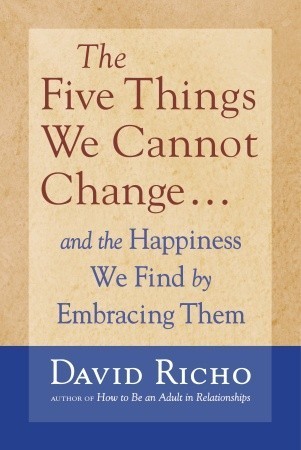
The Fifth Agreement
Book Description
Dive into a transformative journey where ancient wisdom collides with modern life. In "The Fifth Agreement," Miguel Ruiz uncovers powerful insights that shatter limiting beliefs and ignite personal freedom. Each agreement is a stepping stone, leading to deeper self-awareness and clarity in a chaotic world. Discover how to break free from the chains of fear and judgment, unlocking the potential to live authentically. With every page, the stakes rise as profound questions challenge the very fabric of perception. Are you ready to redefine your reality and embrace the truth of who you really are?
Quick Book Summary
"The Fifth Agreement" by Don Miguel Ruiz, co-written with his son Don Jose Ruiz, expands on the teachings introduced in "The Four Agreements." Centered on Toltec wisdom, the book invites readers to question their core beliefs and challenge the domestication of their minds. While revisiting the original agreements—be impeccable with your word, don’t take anything personally, don’t make assumptions, always do your best—the book introduces a fifth: be skeptical, but learn to listen. It urges readers to see beyond personal stories and social programming, encouraging clarity, self-awareness, and inner freedom. By integrating these agreements, individuals can experience profound transformation, freeing themselves from judgment, fear, and limiting narratives to live authentically and joyfully.
Summary of Key Ideas
Table of Contents
The Foundation of Agreements and Personal Beliefs
The book opens by explaining the concept of agreements—core beliefs internalized from childhood that shape our perception of reality. Ruiz asserts that most people are domesticated by society, adopting self-limiting beliefs that define what they think and feel. The first four agreements are reintroduced: be impeccable with your word, don’t take anything personally, don’t make assumptions, and always do your best. These form the basis for personal freedom, encouraging readers to break free from harmful conditioning.
The Power of Perception and Storytelling
As the narrative progresses, Ruiz examines the power of perception. He argues that everyone tells themselves stories based on subjective interpretations, not absolute truth. Recognizing these stories as illusions is key to emotional release. Individuals often suffer due to false narratives and judgments, which cause unnecessary pain. The book urges readers to question their perceptions and understand the difference between objective reality and the subjective stories they create.
Cultivating Authentic Communication and Listening
Communication, for Ruiz, holds transformative potential. He emphasizes the importance of impeccable language—not just in what we say to others, but in how we speak to ourselves. Miscommunication and assumptions can lead to conflict and misunderstanding. By practicing honest and clear communication, and by genuinely listening to others, we build trust and mutual respect. Ruiz also stresses the significance of the fifth agreement: being skeptical, but learning to listen, which helps guard against misinformation while cultivating openness.
Freedom from Judgment and Limiting Narratives
Much of the book is devoted to breaking free from judgment—both towards oneself and others. Ruiz explains that internalized judgments fuel fear, shame, and a sense of unworthiness. By observing thoughts without attachment and refraining from taking things personally, individuals can liberate themselves from the cycle of blame and self-criticism. This leads to greater empathy and compassion for oneself and those around us, facilitating positive relationships and self-acceptance.
Transformation through Awareness and Skepticism
The core message culminates in empowerment through awareness and skepticism. Ruiz advocates for a mindful skepticism that does not breed cynicism but nurtures discernment. By carefully examining beliefs and listening deeply—both to others and to oneself—individuals become aware of their conditioning. Integrating all five agreements fosters authenticity, clarity, and personal growth, allowing people to consciously choose how they respond to life's circumstances and to live with greater joy, integrity, and self-determination.
Download This Summary
Get a free PDF of this summary instantly — no email required.





